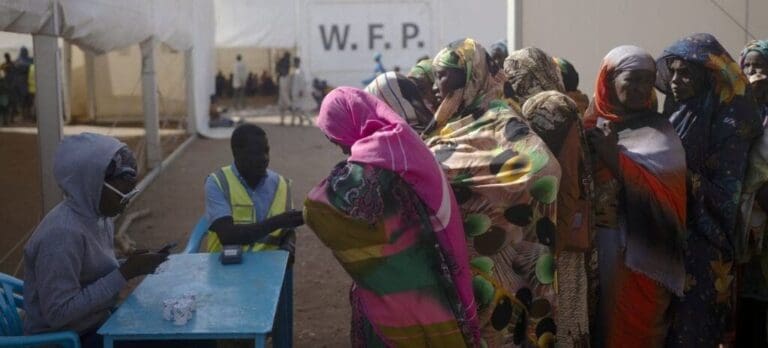The World Food Programme (WFP) is launching an urgent appeal to prevent a food crisis, after estimating that $404 million is needed to prepare for a hunger response in South Sudan.
WFP says “it currently has no food reserves” in the East African country to carry out the humanitarian response planned for 2025. The agency estimated its funding needs at $404 million to focus aid at the start of the year, launching an “urgent appeal” to donors for a country where half of the population is already facing crisis (IPC3) levels of hunger or worse.
The UN agency warns that if donations do not arrive in time, it will have to resort to costly airdrops later in the year to reach isolated communities facing the most severe levels of hunger and reliant on humanitarian food aid. Of the 79,000 people at risk of starvation in South Sudan, most are in Pibor and Aweil East counties, as well as returnees from neighbouring Sudan, where a civil war between the army and paramilitary forces has been raging since April 2023.
“It takes months for donor pledges to translate into food in the hands of hungry people in South Sudan. The country’s limited road networks are impassable for much of the year – particularly in the east and centre of the country where food insecurity is highest,” said Shaun Hughes, WFP’s Acting Representative for South Sudan.
In a recent report, WFP and the Food and Agriculture Organization (FAO) say the number of people facing starvation and death is “expected to nearly double” between April and July 2024 compared to the same period in 2023. The critical food security situation is also expected to “worsen” as the 2025 lean season approaches, which runs from May to August.
Furthermore, the influx of returnees, refugees and asylum seekers from Sudan into border states is expected to “intensify” as the rainy season ends and conflict in that country escalates, further increasing pressure on host communities.
Only 2.7 million of the 7.1 million hungry people (38%) have received assistance through the 2024 lean season, and most of them have received only half rations. Reducing operational costs is “essential” to enable WFP to reach as many vulnerable people as possible.
ODL/Sf/ac/fss/gik/APA


